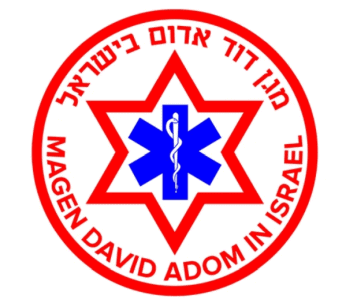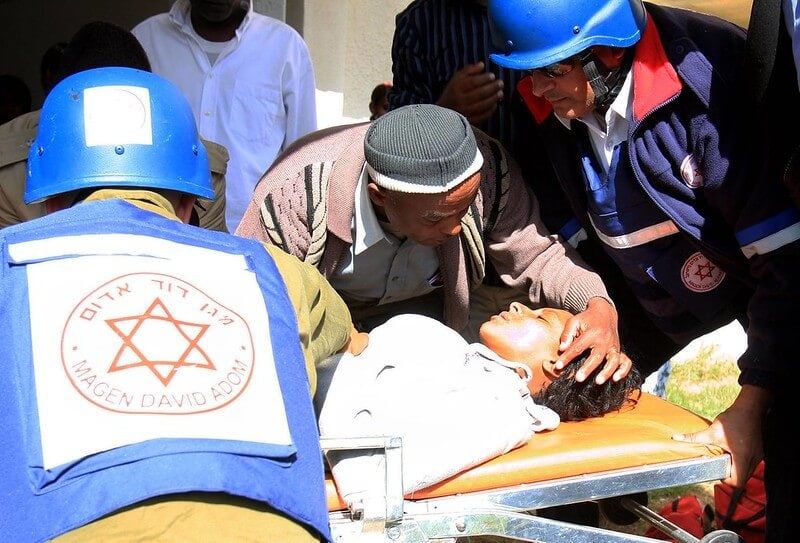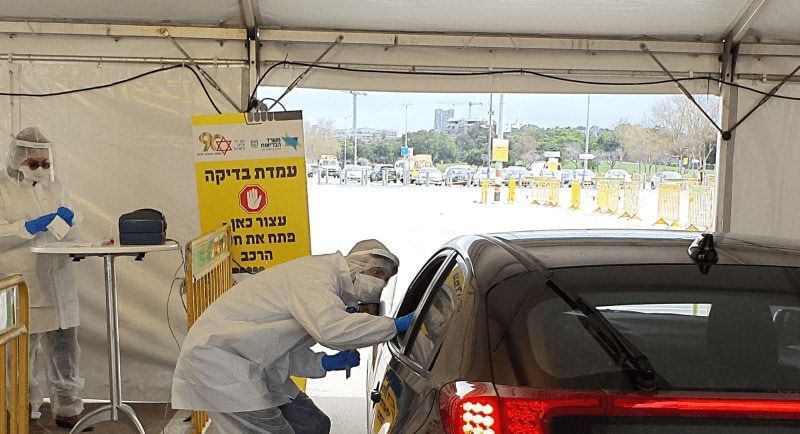Those familiar with emergency medical services like Israel’s Magen David Adom know that almost to a one, they take their work seriously and are constantly training, developing and preparing for both the inevitable and the unexpected. The coronavirus pandemic is no exception.
In the best of times, every country always needs emergency medical services (EMS). Even in otherwise ideal conditions, people have accidents, get sick or have babies at unexpected times and we train ourselves from a young age to know by heart the number to dial for an ambulance.
In the worst of times, a strong EMS service with ample reserves and resources is critical when disaster strikes. However, earthquakes, tornadoes and forest fires are all localized – when a crisis hits resources can be called in from neighboring areas to help.
A pandemic, however, is a very different beast. When every country in the world is being infected, resources are tied up. And inside those countries as infection rates grow exponentially, the EMS services can become overwhelmed. An EMS agency in one section of the country may be unable or unwilling to cooperate as resources are strained to the limit.
In America, EMS services are a mixture of public and private agencies depending on the state or city with wide variations across the 50 states and territories. In Canada emergency services are under general publicly funded under provincial authority with different models of service depending on whether it is rural or urban. The UK gets publicly funded EMS services from 14 different National Health Services providers of ambulance services.
Join the fight for Israel’s fair coverage in the news
Magen David Adom
Israel has one single national EMS service – Magen David Adom (MDA), whose name refers to the red star of David symbol. Started as a non-profit organization in 1930, it was formalized in 1950 by an act of the Knesset, Israel’s parliament, to be the official national EMS. The goals of the MDA are what one expects: provide first aid, collect and handle blood donations and back up the Israeli military in times of war.
The organization grew and matured over the years to be an organization with some 2,000 full-time employees, but staffed as well by about 10,000 volunteers who do everything from helping run blood donation drives to being part of an ambulance crew. MDA’s mandate includes teaching first aid, and thousands of courses are given each year out of which most of the volunteers graduate.
 Magen David Adom gets government funding, but also relies on donations from abroad to provide services to Israel’s more than 9 million citizens. The budget has to cover the operation and maintenance of an impressive list of assets including a national call center, nine regional call centers, 1,100 ambulances including 379 mobile intensive care units, 650 first-aid motorcycle units, three helicopters a slew of related vehicles like refrigerated vans for transporting blood and other state-of-the-art equipment.
Magen David Adom gets government funding, but also relies on donations from abroad to provide services to Israel’s more than 9 million citizens. The budget has to cover the operation and maintenance of an impressive list of assets including a national call center, nine regional call centers, 1,100 ambulances including 379 mobile intensive care units, 650 first-aid motorcycle units, three helicopters a slew of related vehicles like refrigerated vans for transporting blood and other state-of-the-art equipment.
The red star of David symbol used to a sore spot for Israelis. The International Red Cross denied Israel membership because the MDA refused to use either the red cross or red crescent, symbols of Christianity and Islam. However, the international body introduced a new emblem that had no religious connotation and Israel joined in 2006 as a full member.
What surprises many outsiders is that the national EMS in the Jewish state is non-denominational and serves all citizens equally no matter what their religious belief. The MDA itself has a large number of staff and volunteers from all the minority communities: Moslems, Christians, Druze, Circassians and others.
The spirit of the multi-ethnic makeup of Magen David Adom was captured during the coronavirus epidemic when an ambulance crew stopped for a prayer break. The Jewish and Moslem medics were photographed fulfilling the daily obligations of their respective faiths.
A beautiful photo that shows how Israelis come together in a time of crisis.
MDA's staff and volunteers may come from different religions and backgrounds, but all of them are integral and committed to helping Israelis fight #coronavirus #Israel #Covid_19 pic.twitter.com/f7WaBcvaNz
— Magen David Adom (@Mdais) March 24, 2020
Magen David Adom Evolving Through War and Peace
Israel’s last major international war was in 1973 and the country subsequently signed peace treaties with neighboring Egypt and Jordan. Since then, MDA has been forced to evolve as the country suffered through countless Palestinian terror attacks.
Especially during the intifadas the MDA was challenged by hundreds of suicide bombings, shootings, knifings and other attacks that left tens of thousands of casualties. By necessity Magen David Adom refined its training programs, blood collection service, emergency call centers and expanded its inventory beyond ambulances to include smaller, more agile and responsive vehicles like motorcycles, boats and rescue helicopters.
Since the first rocket fired from Gaza in 2001, MDA first-responders have been on the scene after literally thousands of rocket attacks.

Having cut their teeth on being the first responders to terror attacks, Magen David Adom personnel are now forced to deal with a new enemy: the coronavirus pandemic.
MDA and the Coronavirus Outbreak
As a single national body and as a non-profit, Magen David Adom was positioned to have the most vested interest and least conflict of interest in providing services. Its mandate to benefit all residents and “perform any additional function” depending on the need has allowed MDA to step up and respond in kind as the crisis first hit Israel and expanded.
Although its call centers normally handle several thousand calls daily, the coronavirus resulted in a massive increase flooding the lines. Withing days, the MDA opened emergency call centers and quickly trained the volunteers who were handling up to 100,000 calls per day.
The epidemic also moved beyond the range of Israel’s healthcare system. Residents in mandatory home-isolation needed to be tested, but rather than have them leave their homes and possibly infect more people, Magen David Adom sent crews in protective gear to their homes to take the samples and send them to labs for analysis.
As the rate of infection spread health officials realized that the need to test thousands of people daily would quickly overload hospitals and clinics. MDA had the flexibility and manpower to open six drive-through test centers in Israel’s five largest cities and in the Wadi Ara region to serve the large number of Arab towns there. Within days, equipment was set up and procedures put in place allowing citizens with symptoms to get tested without exposing themselves to and possibly infecting others.

MDA staff developed a method whereby people showing symptoms of coronavirus call the emergency number and receive a QR code sent to their smartphone. They then leave home isolation, drive to the center, and after being identified by their code and while sitting in their vehicle, get swabbed by an MDA technician wearing protective gear. Individuals then return to home isolation while awaiting for the test results.
The system has so far saved hospitals from being overwhelmed and prevented infected people from possibly infecting others simply by going to a hospital or clinic for the test. The drive-through centers and volunteers continuing their home visits allowed thousands more tests to be carried out daily, helping the Ministry of Health to identify pockets of high infection and let health officials allocate resource accordingly.
Related reading: Protecting Israelis With Disabilities From COVID-19
The responsibility of keep the national blood bank supplied during the pandemic was also a challenge, possibly best met by an organization like MDA. With large blood donor clinics impossible out of fear of spreading the virus, the organization sent mini-teams to neighborhoods and towns used to holding regular blood drives every three months. Minimizing contact, Magen David Adom continued to collect blood despite a national lockdown keeping most Israelis at home.
Beyond Israel’s borders the MDA cooperates internationally in programs like the EU NO-FEAR (Network Of practitioners For Emergency medicAl systems and cRitical care) initiative. It is also an active member of the International Red Cross and Red Crescent Movement (ICRC) and cooperates on several levels.
The model of a non-profit national EMS may not fit the situation in every country, but Israel’s MDA has managed to set itself apart as an innovative organization that continues to operate effectively.
Featured image: CC0 BY Pixabay, CC0 Unsplash and FlatIcon; Beersheva; CC BY-SA paffairs_sanfrancisco;
Liked this article? Follow HonestReporting on Twitter, Facebook, Instagram and TikTok to see even more posts and videos debunking news bias and smears, as well as other content explaining what’s really going on in Israel and the region.


